Why Do the British Love Gardening So Much? Exploring a Cherished Tradition
Gardening holds a special place in British culture. This passion for gardening isn’t just about beautifying spaces but also about connecting with nature and tradition. For many British people, gardening is a way to improve both their physical and mental health. It provides a sense of purpose and accomplishment that few other hobbies can match.
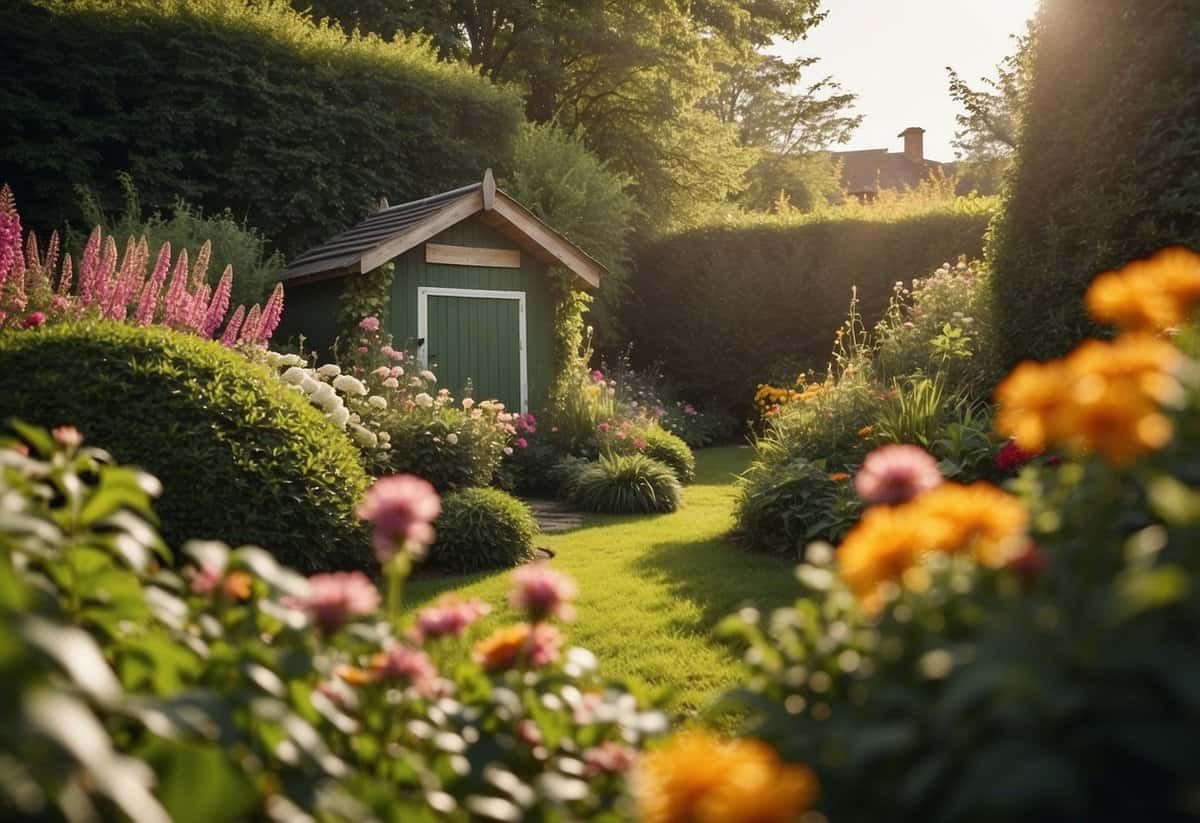
The British gardening culture is deeply rooted in history. Homes and public places often feature stunning gardens, reflecting centuries-old practices. Spending time in the garden is a cherished activity, bringing joy and relaxation to many.
Moreover, gardening is a social activity in the UK. You’ll find garden clubs and community gardening projects that foster teamwork and friendship. This shared love for gardening strengthens community bonds and keeps the tradition alive. Explore why gardening is such a beloved activity in the UK, and you might find yourself inspired to pick up a trowel and join in.
Historical Roots of British Gardening

British gardening has deep historical roots shaped by important periods and events. Here, you will explore notable eras that influenced the nation’s love for gardens.
Victorian Influence on Gardening
During the Victorian era, gardening became an essential part of English culture. Many people, influenced by Queen Victoria’s interest in gardens, started to cultivate their green spaces. The Victorian garden often included intricate designs and exotic plants.
Hedges and Flower Beds:
A typical garden featured neatly trimmed hedges and vibrant flower beds. The Victorians loved symmetry and order in their gardens, often creating intricate patterns with different colored flowers.
Greenhouses and Fern Fever:
Wealthier families built greenhouses to house exotic plants. There was even a craze known as “Fern Fever” where people collected and displayed various fern species.
You can see how gardening books proliferated during this time. For example, Jane Loudon’s Ladies’ Companion to the Flower Garden sold over 20,000 copies in 1846.
The Role of Gardening During Wartime
Gardening played a crucial role during wartime. During both World Wars, the British government promoted gardening as a means of food production and morale boosting.
Victory Gardens:
During World War II, many citizens grew “Victory Gardens.” These gardens helped supplement food rations by providing fresh vegetables and fruits. Parks, public spaces, and private gardens were converted into vegetable patches.
Community Spirit:
Gardening also fostered a sense of community. Neighbors shared tips, seeds, and produce. This communal effort strengthened social bonds during tough times.
War Effort:
The push for local food production helped the war effort by reducing dependence on imported goods. Gardening became a patriotic activity, symbolizing resilience and self-sufficiency.
By exploring these historical periods, you can better understand why gardening is so deeply rooted in British culture. For a more detailed look into British gardening history, you might enjoy this article.
Gardening as a National Hobby
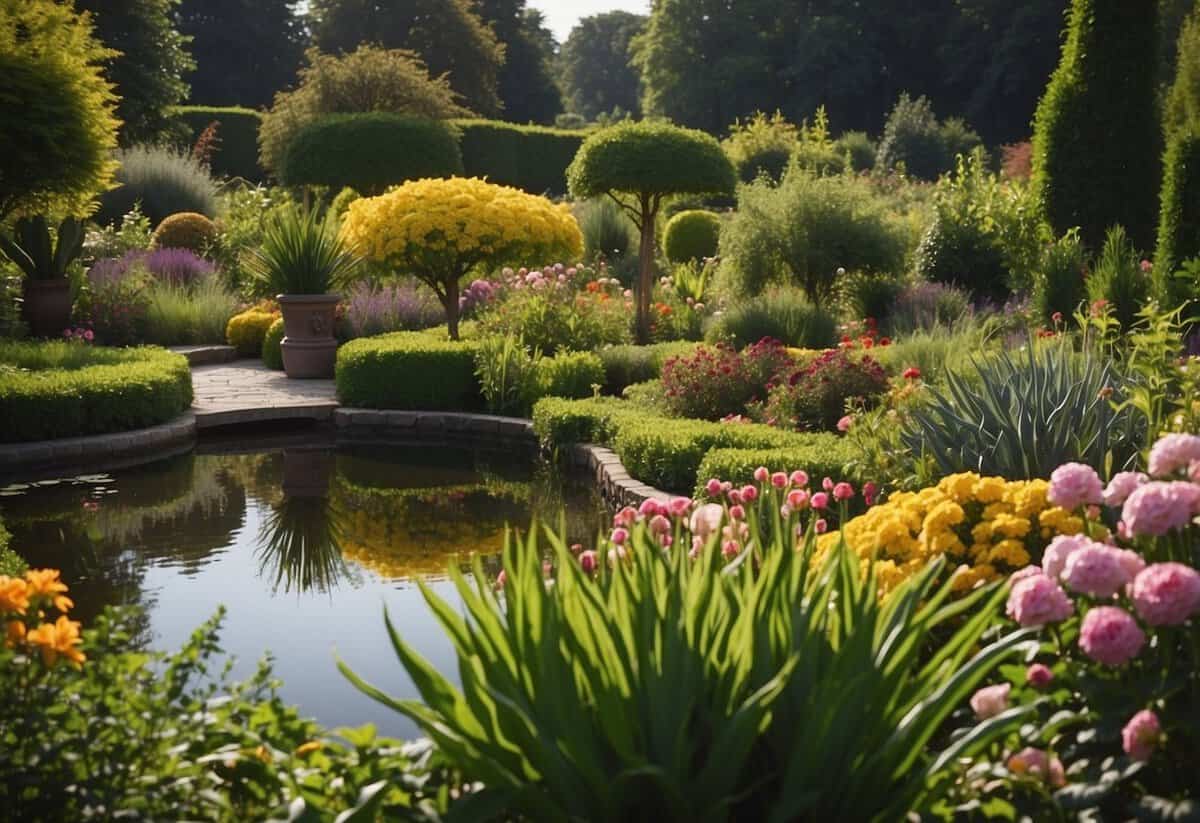
Gardening is a beloved activity in the UK, supported by key organizations and events that bring communities together. These initiatives make gardening an engaging and inclusive hobby for millions.
Influence of Royal Horticultural Society
The Royal Horticultural Society (RHS) plays a major role in promoting gardening across the UK. Founded in 1804, the RHS provides valuable resources and inspiration for gardeners of all skill levels. Membership offers access to expert advice, exclusive garden visits, and a wide range of horticultural literature.
You can also participate in various RHS-led education programs, from workshops to seminars. These programs focus on everything from plant care to garden design, ensuring you have the knowledge to succeed. This support makes gardening more accessible and enjoyable for everyone.
The Celebrated RHS Chelsea Flower Show
The RHS Chelsea Flower Show is one of the most recognized gardening events globally. Held annually in London, it draws visitors from all over the world to see innovative garden designs and stunning floral displays. The show highlights the latest trends and offers inspiration for your own gardening projects.
By showcasing top landscape designers and horticulturists, the Chelsea Flower Show celebrates the beauty and creativity of gardening. It’s a chance to see rare plants, new varieties, and even meet gardening celebrities. This event helps to keep the gardening culture vibrant and current.
National Garden Scheme and Public Participation
The National Garden Scheme (NGS) encourages public participation by allowing private gardens to open for charity. This tradition, which started in 1927, gives you the opportunity to explore beautiful, unique gardens while supporting good causes. The funds raised go to nursing and health charities.
Through the NGS, you can visit a wide range of gardens, from small urban plots to grand estates. This initiative not only promotes gardening but also fosters community spirit and provides inspiration for your own garden. Plus, the chance to chat with fellow gardeners and share tips is invaluable.
Health and Wellbeing Benefits
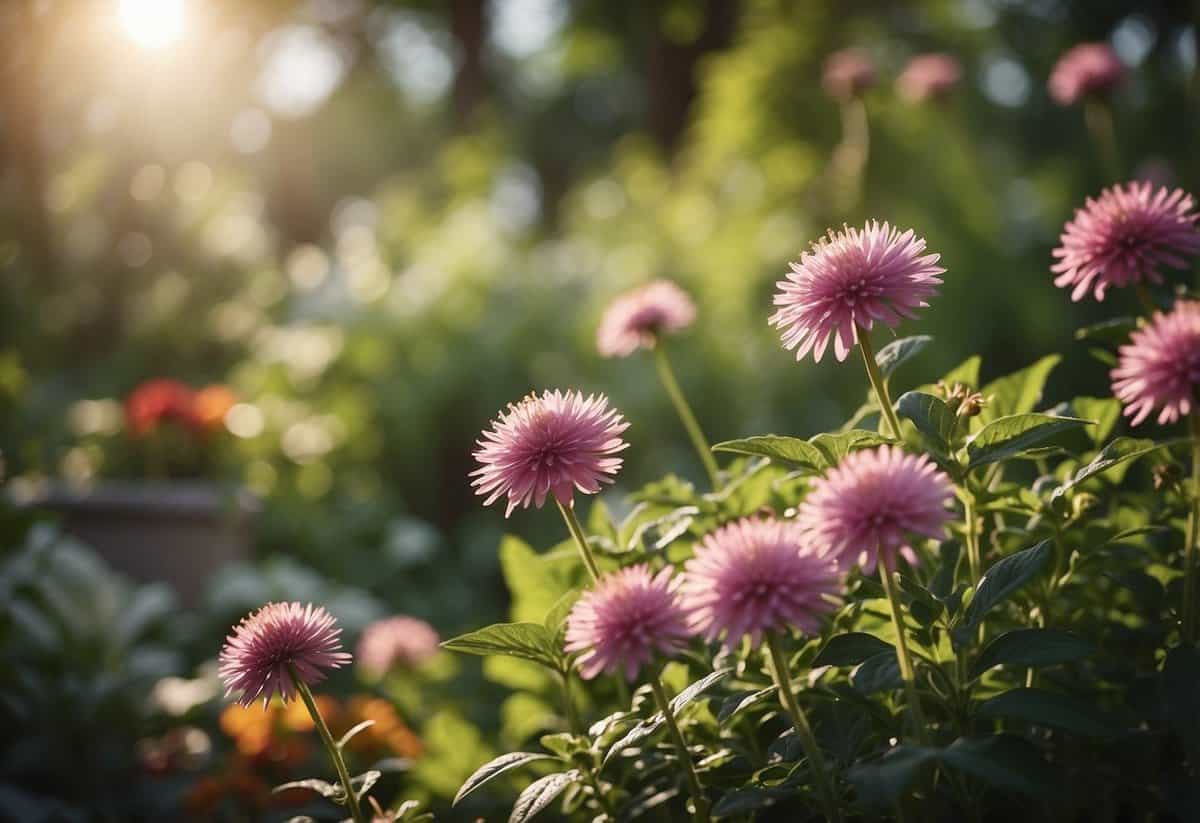
Gardening isn’t just a hobby; it’s a powerful way to improve both your mental and physical health. By spending time in your garden, you can reduce stress and gain various physical health advantages.
Reducing Stress Through Gardening
Spending time in your garden can significantly lower your stress levels. Activities like planting flowers and tending to plants help you focus on the present moment, making you feel calm and relaxed. Studies show that being among nature can boost your mood and reduce anxiety.
Engaging with your garden allows you to disconnect from everyday worries. The repetitive actions of gardening, such as digging and weeding, can be very soothing. You feel a sense of accomplishment when you see the results of your hard work, which boosts your mental wellbeing.
Even just sitting in your garden can be beneficial. Exposure to sunlight increases your levels of serotonin, a hormone that’s linked to happiness. This can help lift your spirits, especially if you spend time outside regularly.
Physical Health Advantages of Gardening
Gardening is a form of exercise that improves your physical health. Activities like digging, raking, and planting can be as effective as a workout at the gym. You burn calories, build muscle strength, and maintain flexibility while working in your garden.
Regular gardening can improve your cardiovascular health. The physical effort involved increases your heart rate and promotes better circulation. This can lead to lower blood pressure and a reduced risk of heart disease.
Moreover, gardening helps you spend more time outdoors, which means more vitamin D from sunlight. This is vital for bone health and immune system function. By gardening, you stay active and receive health benefits, all while enjoying the beauty of nature.
By incorporating these activities into your routine, you can significantly improve your overall health and wellbeing.
Cultural Significance and Social Aspects
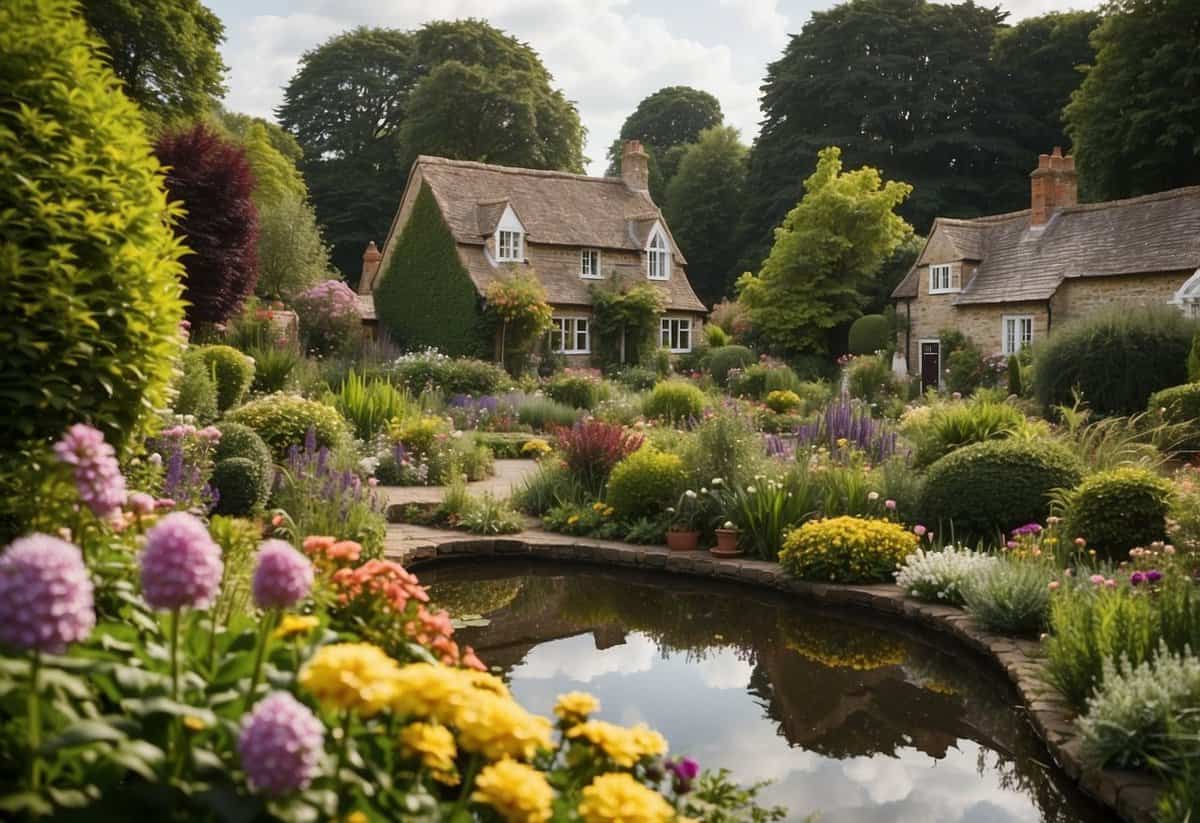
Gardening holds a special place in British culture, influencing literature and media, and acting as a catalyst for community building and family bonding.
Gardening in British Literature and Media
British literature and media often highlight gardening as a cherished activity. Classic novels like Jane Austen’s “Pride and Prejudice” feature gardens as important settings where characters interact. Authors such as John Claudius Loudon, who wrote numerous gardening books in the 19th century, made gardening a popular topic. More recently, gardening shows on TV, like “Gardener’s World,” attract large audiences. These programs inspire viewers with practical tips and showcase beautiful gardens, reinforcing gardening’s importance in British culture.
British gardens are also depicted in movies and artwork, reflecting their lush landscapes and historical significance. Through these various forms of media, the love of gardening is continuously shared and celebrated, making it an integral part of British life.
Community Building and Family Bonding
Gardening in the UK often brings communities and families together. Many neighborhoods have community gardens where residents can grow plants and vegetables. These gardens can be a meeting place, promoting interaction among different generations and backgrounds. Participating in such communal activities fosters a sense of belonging and cooperation.
Family gardens, whether big or small, also play a role in bonding. Parents and children can spend time together planting and maintaining their garden, creating lasting memories and teaching valuable skills. It’s common for gardening knowledge to be passed down through generations, further solidifying its role in family dynamics.
Through these community and family activities, gardening becomes much more than a hobby. It’s a vital part of British social life, strengthening relationships and nurturing a shared passion for the outdoors.
Climate and Environmental Impact on Gardening
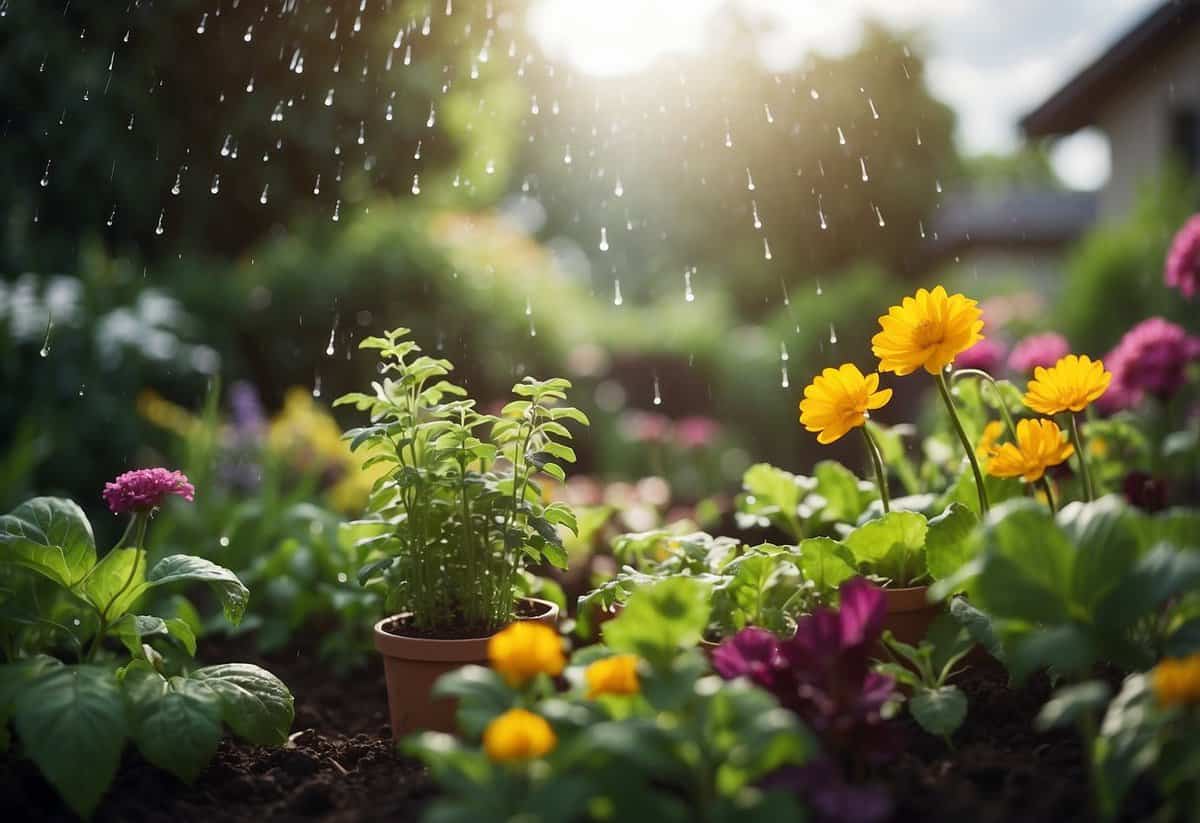
Gardening in England is not just a hobby; it is deeply influenced by the climate and environmental conditions. From adapting to the unpredictable British weather to the critical importance of green spaces in dense urban areas like London.
Adapting Gardens to the British Weather
England’s weather is known for its variability. As a gardener, you need to prepare for everything from heavy rain to unexpected heatwaves. The Royal Horticultural Society’s report highlights that climate change is altering the gardening landscape. Higher temperatures can extend the growing season for some plants but also bring challenges like drought and heat stress.
Choosing the right plants is crucial. Perennials, such as lavender and rosemary, which are more drought-resistant, might become more common in British gardens. Mulching can help conserve soil moisture, and installing rainwater harvesting systems ensures that you have water available during dry spells.
Excessive rain can cause root rot. Raised beds and improved soil drainage can mitigate this issue. Adapting to these changing conditions can make your garden more resilient and sustainable.
Importance of Green Spaces in Urban Settings
In urban areas like London, green spaces are vital for both the environment and the community. These spaces reduce pollution, provide habitats for wildlife, and offer a refuge from the hustle and bustle of city life. The BBC notes that research is ongoing to identify the best plants for absorbing pollution, an important factor for gardens near busy roads like those around the M25 in Surrey.
Urban gardens can improve your mental and physical well-being. They offer places for relaxation and exercise, helping to reduce stress. Community gardens foster social interaction and can even provide fresh produce. Green roofs and walls are increasingly popular, helping to cool buildings and reduce the urban heat island effect.
Creating and maintaining green spaces in cities is essential for a healthier urban environment. Whether it’s a community garden or a small balcony of plants, every bit of green can make a big difference.







